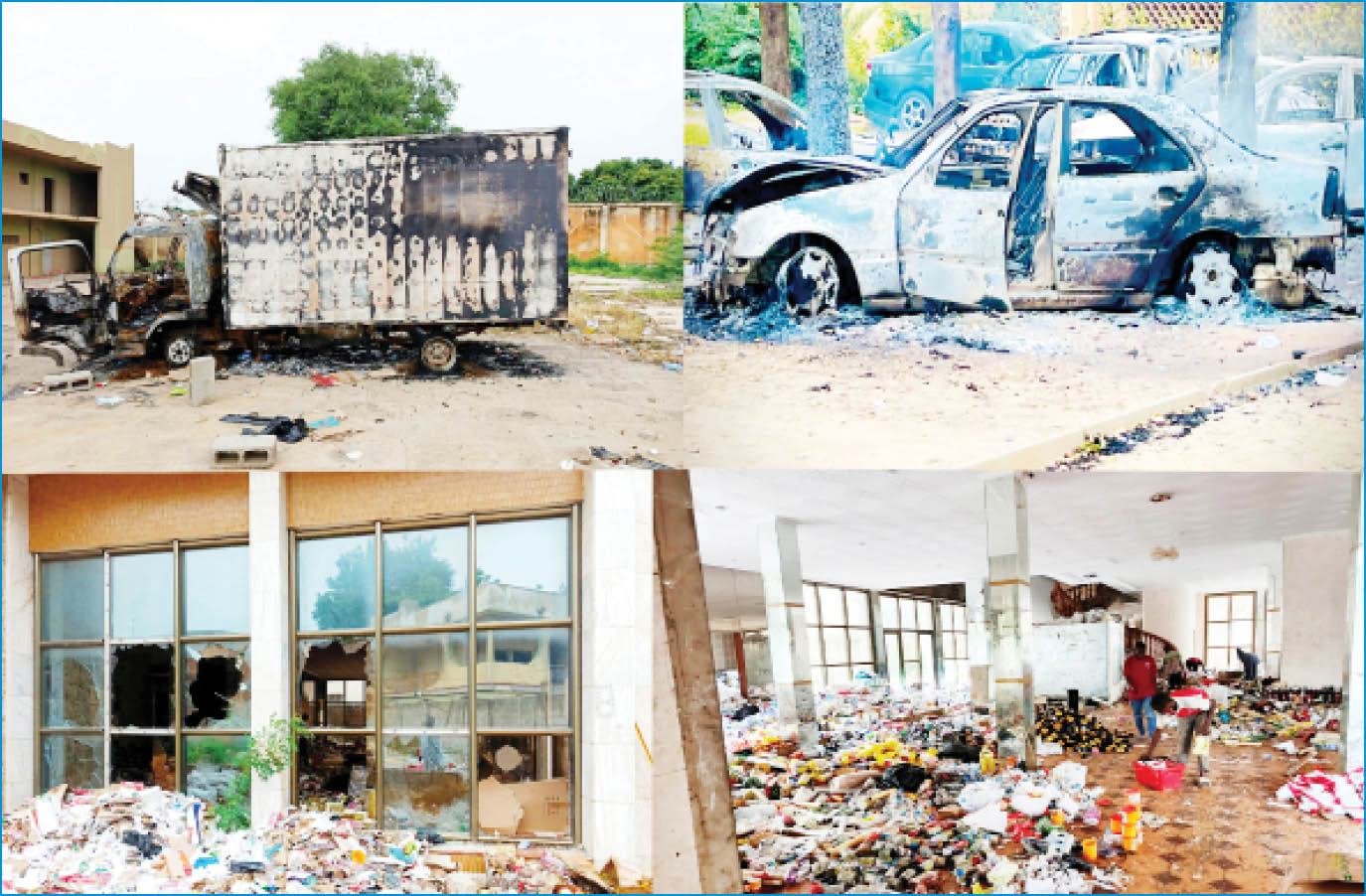In late July, it was announced that nationwide protests would take place in Nigeria in response to the growing economic hardships faced by everyday Nigerians and the perceived lack of fiscal responsibility by the country’s leadership. After President Tinubu removed petrol and electricity subsidies, many expected the government to take steps to curb unnecessary spending, cut the cost of governance and work to ensure that the purchasing power of citizens would not drop significantly.
However, this expectation is yet to be met. In the early months of 2024, the government spent billions of naira on various expenses that were widely criticised as being insensitive to the suffering of the populace. These expenditures included the renovation of the Vice President’s official residences (Lagos and Abuja) and the acquisition of luxury SUVs for members of the federal legislature.
Meanwhile, the cost of staple foods such as rice, bread and garri skyrocketed, placing further strain on households. President Tinubu’s administration also faced criticism for having the largest number of ministers in Nigeria’s history, a move that significantly increased the cost of governance. Critics argued that this bloated cabinet was unnecessary and only added to the financial strain on the country.
Adding to the controversy was a budgetary allocation of N1.5 billion for the purchase of luxury cars for the First Lady. Since the office of the First Lady is not officially recognised by the Nigerian Constitution, this expenditure was seen as both legally and morally questionable.
- Food security: Caribbean states seek partnership with Nigeria
- Mutfwang suspends 2 commissioners, SA, liaison officer
The criticism intensified against the backdrop of widespread economic difficulties, where many Nigerians struggled with high inflation and unemployment. This spending was viewed as a symbol of government extravagance and insensitivity, further fuelling the #EndBadGovernance protests.
The role of the Nigeria Police Force in managing the protest has been a consistent point of criticism. Even though the right to a civil protest is protected under the constitution, the Nigeria Police Force is widely perceived as not responding proportionately to what was built to be a peaceful protest by its promoters.
The #EndSARS movement, which inspired many youths to take a stand against unfair rule in 2020 saw its spiritual successor through the youth mobilisation seen in #EndBadGovernace. The police force was embroiled in a slew of controversies or accusations following them from excessive use of force and corruption to extrajudicial killings.
The EndSARS protests quickly evolved into a broader call for an end to bad governance in Nigeria, encompassing issues such as corruption and poor governance.
While the protestors’ key demands encapsulated in the “#EndBadGovernace” movement could be seen as a more general response against the rising cost of living, it is still a further step towards Nigerians demanding better standards of accountability from our government. As such the August protest was well situated to take full advantage of the government’s bad optics on various fronts to bring people in the middle to their side
So, what happened? Where one would have expected the protest to resonate among the country’s demographics, following the first week of August the movement has seemingly lost most of its steam and things have reverted to business as usual. While one may say that the protest achieved its intended goal of raising awareness on the dire state of common people it is difficult to not look upon the areas where the protests fell short including the regrettable loss of lives and wanton destruction unleashed on innocent citizens. This shows the poor planning for contingencies by the protest organisers. While the majority of participants were focused on demanding better governance and accountability, a minority took advantage of the unrest to engage in looting, arson, and vandalism.
For example, in Kaduna and Kano, there were reports of shops and businesses being looted under the guise of the protests. These acts of looting were condemned by both the organisers of the protests and various civil society groups, who emphasised that such actions detracted from the legitimate grievances being raised.
That being said the government’s success at containing the efforts of the movement were also a result of its decentralised nature. Without any clear leadership structure the protest had the ability to spread itself wide but also made it far less coordinated. The protests were heavily driven by social media, with platforms like Twitter (now X) Facebook, and WhatsApp serving as the primary means of communication and organization.
The decentralised nature of social media allowed for rapid mobilisation but also meant that misinformation could spread easily, and it was harder to maintain a unified strategy. As a result, local leaders were able to adapt the protest to their specific regional issues. However, it also meant a lack of consistent messaging and demands, with different groups sometimes advocating for slightly different goals or approaches.
With a government that was already poised to dismantle the protest movement, having no face meant that the movement would always be negotiating with one arm tied behind its back without the ability to unify its disparate voices. Ultimately, the decentralised nature of the protests contributed to its resilience and widespread participation.
However, it also meant that when criminal elements or opportunistic actors engaged in criminal or violent behaviour, it would be difficult for any single group to distance the broader movement from these actions. This sometimes led to negative public perception and gave the government justification to crack down on the protests more broadly.
In conclusion, the message of the protest has been heard loud and clear and the government has promised to take appropriate actions in solving the current difficulties the people are going through. It is imperative that appropriate lessons are learned and implemented to avoid further disruptions to people’s daily lives.
Ibrahim wrote from Abuja

 Join Daily Trust WhatsApp Community For Quick Access To News and Happenings Around You.
Join Daily Trust WhatsApp Community For Quick Access To News and Happenings Around You.


